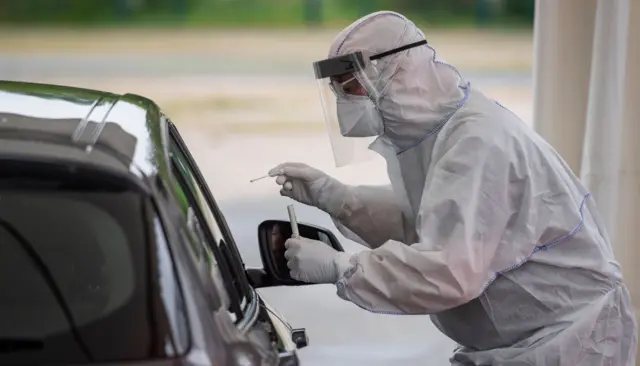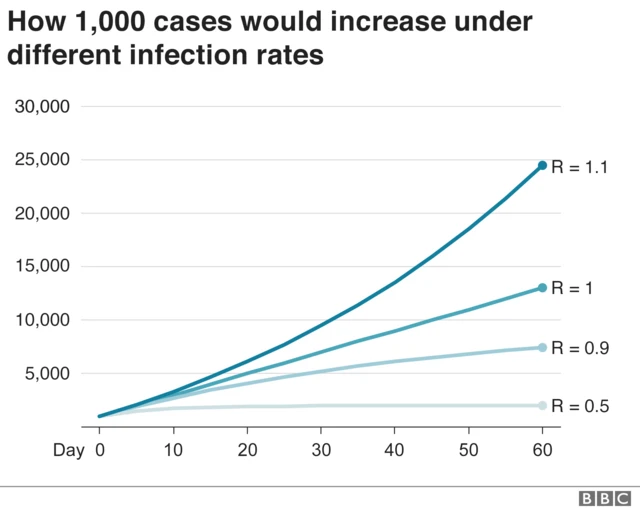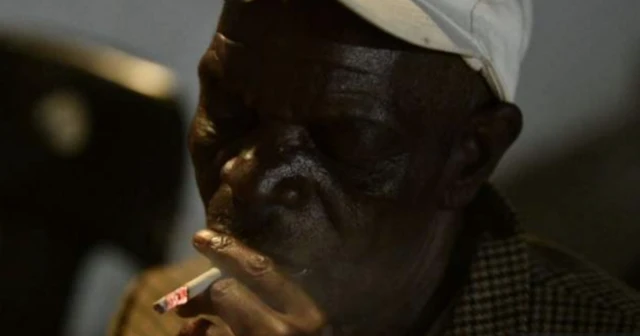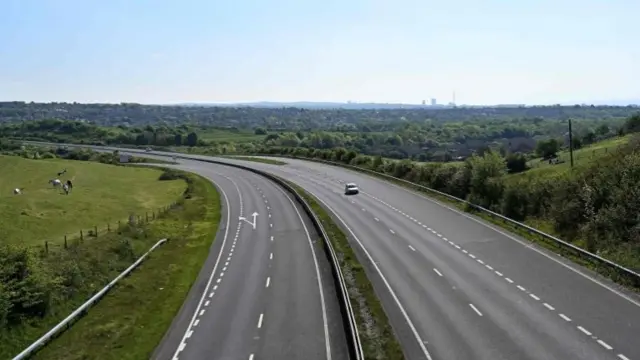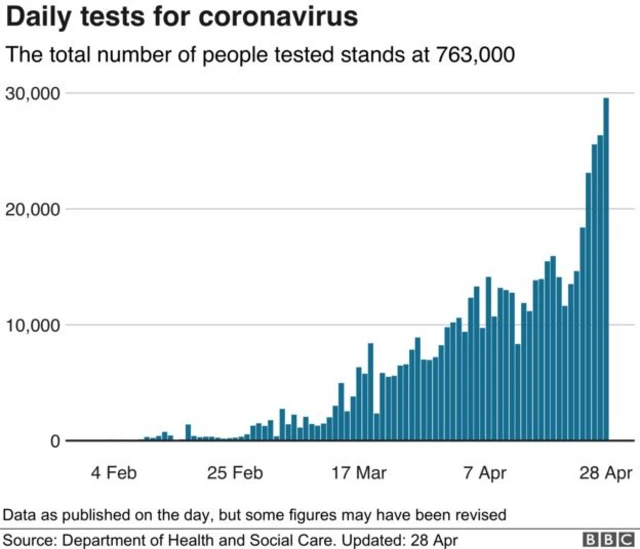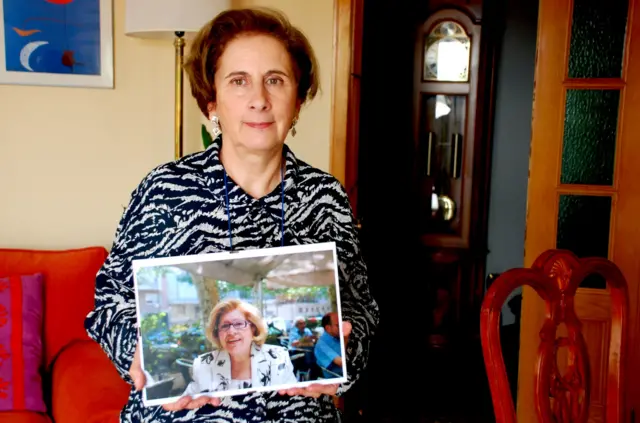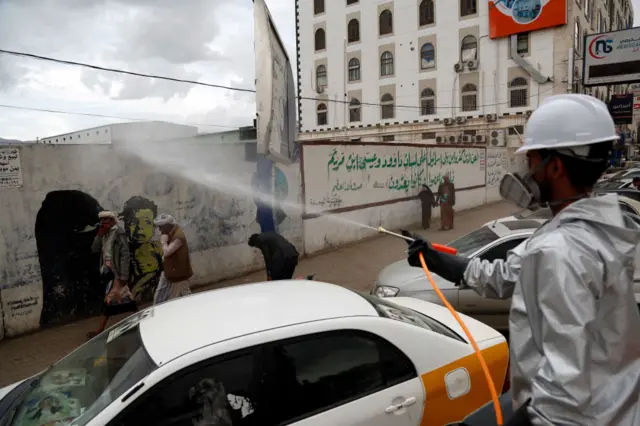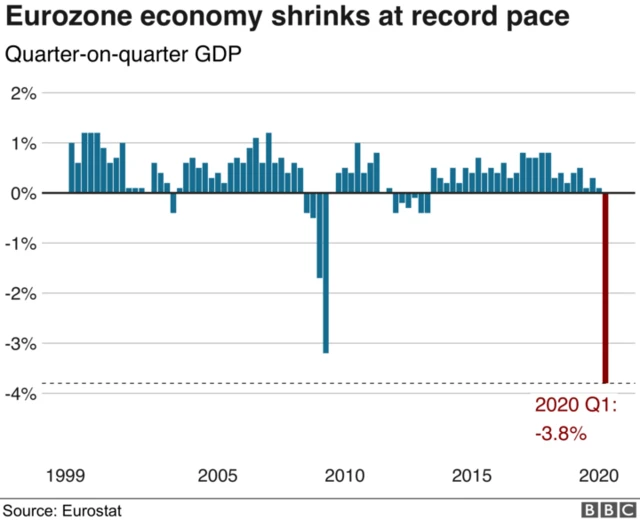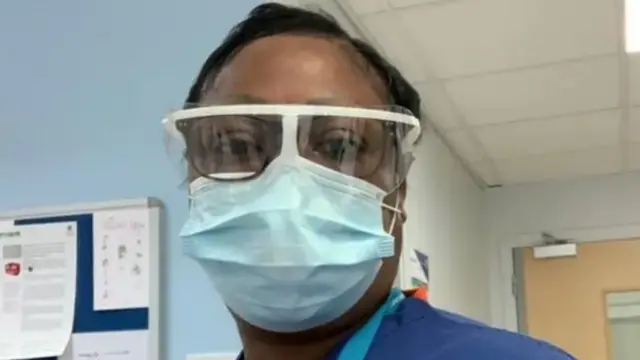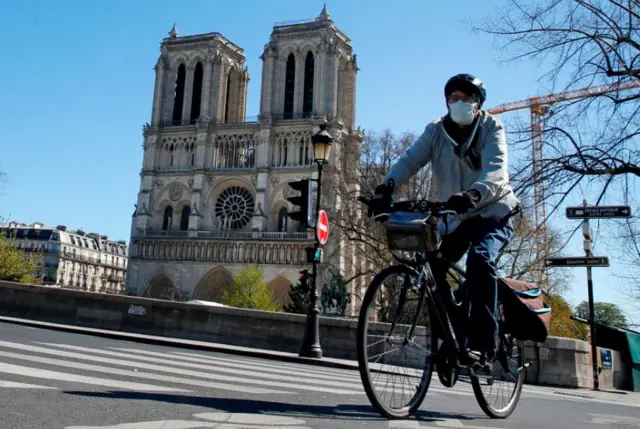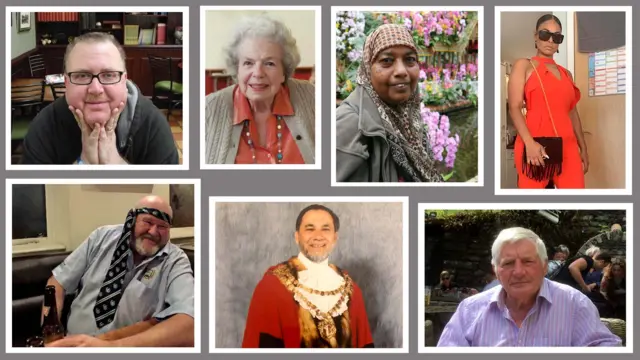Johnson chairs first cabinet meeting since return to workpublished at 14:19 BST 30 April 2020
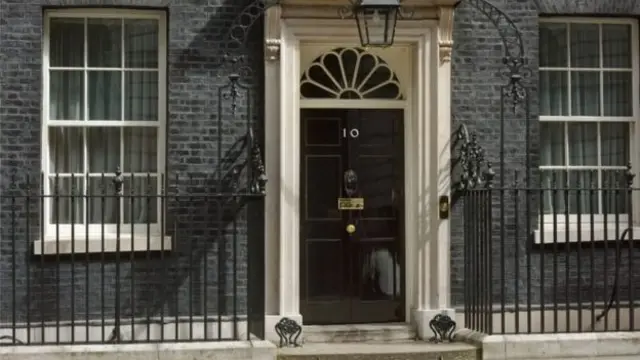
UK Prime Minister Boris Johnson has chaired his first cabinet meeting since returning to work after recovering from coronavirus.
His spokesman said the meeting included updates from chief medical officer Chris Whitty and chief scientific adviser Sir Patrick Vallance on the response to coronavirus so far, and the progress made in slowing its spread.
During a lobby briefing with journalists, the PM's spokesman was also asked if lockdown measures in the UK could last until the end of June.
He would not "pre-empt" any decisions, but quoted Prof Whitty, saying: "We have to be realistic, we're going to have to do a lot of things for a long period of time."
And on reaching the government target of carrying out 100,000 tests a day by the end of the month - the deadline being today - the spokesman said they were still "working hard" to reach the goal.
This is despite Justice Secretary Robert Buckland saying earlier that it was "probable" the target would be missed.
